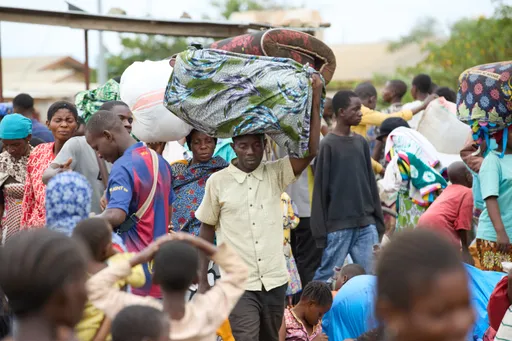By Firmain Éric Mbadinga
The journey from cocoa to chocolate is as laborious as it is intriguing, couched in nuances that infuse in the final product all the delightful complexities of texture and taste.
Ambroise N'koh knows this better than anyone else, having garnered numerous awards for his work in cocoa farming.
This 60-year-old native of Côte d'Ivoire is acknowledged by many as the West African nation's best chocolatier and among the finest in the world.
His lofty reputation stands on almost two decades of hard work in agroforestry since he transitioned from his earlier career in aviation as an air traffic controller.
About 70% of world's cocoa comes from the African countries of Côte d'Ivoire, Ghana, Nigeria and Cameroon with Côte d'Ivoire leading.
In 2019, Abidjan-based N'koh was among the 20 recipients of the "International Cacao Awards" instituted by the Cacao of Excellence programme, which recognises the world's best cocoa.
"I started organic cocoa farming in 2006," N'koh tells TRT Afrika. "Two years later, I met someone who gave a new impetus to my career as a cocoa farmer and entrepreneur."
Until his encounter with Prof Koné Daouda, then director of the Centre of Excellence for Global Warming and Biodiversity, N'koh's foray into professional cocoa farming had been like any fledgling start-up plagued by challenges.
"I spoke to Prof Daouda about the health problems I had been experiencing since I got into cocoa farming. I was primarily suffering from respiratory and skin problems. His advice proved decisive," recounts N’koh.
Transition to organic
Prof Daouda advised N'koh to immediately abandon the use of chemicals in all his agroforestry activities, including cocoa cultivation.
"He introduced me to an organic farming model focused on quality that would be a win-win for the operator and the consumer at the end of the chain," says the man with an imposing build and a spontaneous smile.
Determined to make a successful switch to organic farming, N'koh diligently learned all the innovative approaches and techniques in the field. Along the way, he added a signature touch that distinguishes him from his competitors.
Organic cocoa farming improved the quality of the beans N'koh took to the market and fetched prices he couldn't have imagined earlier.
"My success proved wrong those who had initially misunderstood my choice, with some even calling my decision suicidal," says N'koh.
"I was working at Air Afrique long before it shut operations. I decided to leave it all behind and get into farming because that suited me best. I have always been passionate about it since I accompanied my grandfather into the countryside as a child."
Family as bedrock
N'koh credits the support of his family for much of what he has achieved so far.
"My parents gave me the moral support I needed for this change in direction," he recalls.
"Some of my friends, on the other hand, thought I had fallen flat on my face just by making the choice I did. Given the career I had in aviation, including travelling abroad, they didn't understand my decision at all."
N'koh's wife didn't lose faith in his future as a cocoa planter, even when he was struggling to find a foothold.
"My wife told me, 'Go and be the best planter in your village, and I replied that I would be the best planter in the world'," he tells TRT Afrika.
Model farmer
The flavour of the chocolate produced from N'koh's cocoa has made him a role model in the agri-food sector. His 50-hectare farm regularly hosts visitors eager to learn what makes his cocoa special, including agrobiology students and researchers from partner universities in Côte d'Ivoire and beyond.
N'koh employs around 10 people, to whom he passes on his passion in his way. The regular staff is assisted by contract workers for cocoa picking, gardening, pulping, roasting and other activities.
On average, the farm produces more than 20 tonnes of cocoa a year.
N'koh's commitment to organic cocoa has also led him to take a keen interest in environmental protection. The man to whom the earth has given everything sets himself up, as best as he can, as a guardian of nature.
Referring to the recent 2023 United Nations Climate Change Conference in Dubai, N'koh hopes that the decisions will translate into "real" action to limit greenhouse gas emissions and reduce global warming to less than 2 degrees Celsius.
"I expect rational and forward-looking forest management policies to be put in place," he says.
➤Click here to follow our WhatsApp channel for more stories.
























